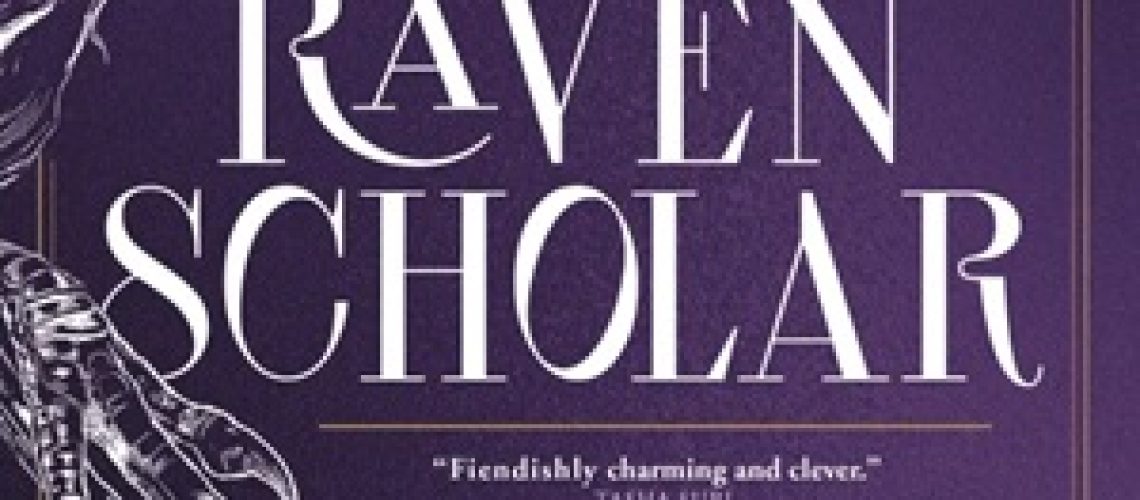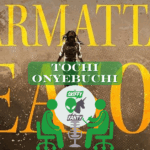It’s been quite a while since I’ve read any truly epic fantasy, so I was slightly concerned about whether I’d have the attention span needed for a 672-page book (even Robert Jackson Bennett’s A Drop of Corruption, which I loved, didn’t top 500). I needn’t have worried. Antonia Hodgson’s The Raven Scholar grabbed me from the start and easily held my attention, aside from a few breaks for chores, so I was able to finish it in one Sunday. The main protagonist is pretty sympathetic to a nerdy pedant like me, with many other interesting characters; the worldbuilding is fascinating in its gradually broadening revelations; and the plot engages attention along multiple axes.
The plot combines several types of mystery with the tension of eight grand Houses’ champions competing to become the next Emperor, with several underlying conspiracies. Emperors in this realm are not hereditary, but rule for a maximum of 24 years, following centuries of tradition. The outgoing Emperor started out as a reformer, elevating the rights and roles of commoners, but apparently got worn down by the aristocratic-leaning system and hasn’t done much along those lines for quite a while. So the overall winner of the tournament, of course, will determine what direction the Empire will take next.
And the competitions are not just personal combat, although that’s a big part of it, but also, each House designs Trials to test the Contenders’ skills in various other areas. One House sends Contenders into some catacombs to face their fears in personally designed experiences, another House sets what appears to be an endurance test but is really about understanding the assignment, and several challenges give points for cooperation and teamwork. The Raven House, of course, presents a three-hour written exam, because this House focuses on scholarship, gathering knowledge, and providing counsel.
I appreciate the thought that Hodgson has put into this. At first glance, picking rulers via tournaments might sound a little unrealistic, at least as an enduring system, but she really sells it via backstory. You see, this realm had endured many centuries of terrible conflict; several times the world was nearly destroyed in cataclysms, but kept being saved by eight mystical, godlike, animal-spirit Guardians, which the eight Houses now honor by their names, traits, and training. The seventh time this happened, the Guardians warned the then-Empress that next time they had to intervene, they’d just destroy the world instead of saving the quarrelsome humans again, and so the Empress instituted the Trials for her own succession instead of passing the crown to any of her children.
But if Imperial succession, even via tournament instead of inheritance, isn’t your thing, there’s plenty else going on in this book. On the morning that the competition is to start, the Raven Contender is found dead. The Emperor turns to his High Scholar, Neema Kraa of the Raven House, to solve the mystery AND to replace the dead competitor. (This may not be as counterproductive as it seems; Neema had designed the opening ceremonies/festival of the previous night, so she knows everything about what was supposed to be happening, and as a Contender, even one whom nobody including herself expects to win, she’ll get to know all the rivals who may have had reasons to kill the original competitor.)
While juggling these responsibilities, Neema also has to contend with people who hate her because they loved the dead woman, people who despise her as a jumped-up commoner, a former friend/lover, and someone who shares a fatal history with her. Plus, of course, all the people she constantly irritates with minor factual corrections when they misstate anything (I actually find this a little endearing). She comes under personal attack, and not just during the Trials.
However, Neema is not as alone as she thinks. She has a few bureaucratic colleagues who respect her work, she makes a few frenemies among the competitors, and perhaps most importantly of all, she has The Raven. Or does it have her? As the promotional copy says:
But we are here to help; all she has to do is let us in.
If she succeeds, we will win an empire. If she fails, death awaits her. But we won’t let that happen.
We are the Raven, and we are magnificent.
The Raven Guardian thinks in first person plural present tense, as a sort of flock mind of all the Raven archetypes that exist, and it’s more concerned with its own priorities than the feelings of its chosen agent. However, most of the book is told in third person past tense, mostly from Neema’s point of view, although the first three chapters are basically a prologue told by someone else from eight years ago, and some small sections relate what’s happening from the viewpoints of other people. I appreciate how vividly Hodgson draws all the people Neema encounters, keeping all eight Contenders distinct, with their own personalities and motivations, plus the Emperor’s efficiency-focused High Commander, and a new assistant who’s just bubbling over with enthusiasm. And, of course, the Emperor himself may be retiring, but he’s still a mighty force.
I also really appreciate how people’s characters are further revealed, or even evolve, as the plot progresses. People are complex, and so are their motivations. When they have to make hard decisions, even if they go all in on something, there are moments (and sometimes years) of revisiting those choices and reevaluating them. But sometimes they just have to live with their pasts.
I adore all the twists and turns that the plot takes. Points that seemed mere flavor-text early on recur later with astonishing impact. There are many sidelines, and some might consider the book convoluted, but the twin rails of the competition and murder mystery keep everything running along and building momentum through to the extremely dramatic conclusion. And although the book held plenty of surprising revelations for me, everything made sense in the end. coming together in a very satisfying way.
That’s not too surprising, considering that although this is apparently Hodgson’s fantasy debut, she is a best-selling historical crime novelist (with books set in Georgian England). Her first novel in the Thomas Hawkins series, A Devil in the Marshalsea, won the Crime Writers’ Association’s Historical Dagger award in 2014.
With Hodgson’s proven track record, I’m very optimistic that the next book in her The Eternal Path fantasy trilogy will maintain the high quality of The Raven Scholar. Yes, this novel is a great opening to what promises to be a great trilogy; moreover, the book finishes with a reset of sorts, rather than leaving characters and readers dangling over a cliff, so I don’t think that’s a reason anyone should hesitate to try it. If you’re up for a long book that doesn’t feel long, with fascinating intrigues and complex characters, I highly recommend The Raven Scholar.
Orbit Books is publishing The Raven Scholar, by Antonia Hodgson, on April 15.
Content warnings: Murder, body horror, references to torture, classism, school bullying.
Disclaimer: I received a free eARC for review from the publisher via NetGalley.







